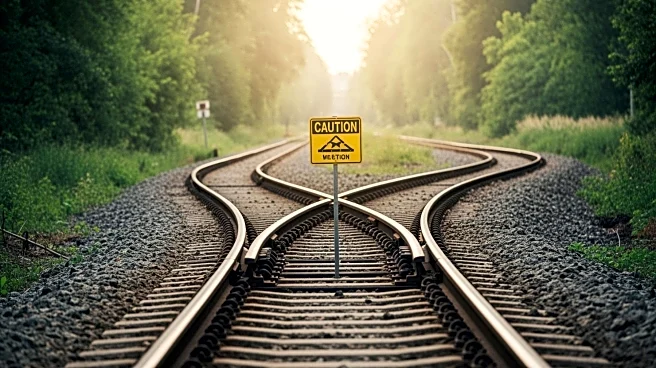What's Happening?
A preliminary report on the Lisbon funicular crash that killed 16 people has revealed multiple safety failures. The report indicates that the cable used was defective and not certified for passenger transportation. There was a lack of oversight and testing
by Carris, the company responsible for Lisbon's public transport. The emergency brake system failed to function properly during the incident. The report emphasizes that further tests and analysis are needed, and it does not assign guilt or responsibility at this stage.
Why It's Important?
The findings highlight critical safety issues in public transportation systems, emphasizing the need for rigorous testing and certification of equipment. The incident has led to a temporary suspension of all Lisbon cable cars until safety checks are completed. This situation underscores the importance of regulatory oversight and adherence to safety standards to prevent such tragedies. The report may influence future policies and practices in transportation safety management.
What's Next?
Carris is expected to implement a new safety management system in line with European best practices. The full report will take about 11 months to complete, with potential interim reports if delayed. There may be legal and regulatory changes to ensure better oversight of cable-driven transport systems. The incident could lead to increased scrutiny and reforms in public transportation safety protocols.
Beyond the Headlines
The crash raises questions about the ethical responsibilities of companies in ensuring passenger safety and the potential consequences of negligence. It also highlights the need for transparency and accountability in public transportation management. The incident may lead to cultural shifts in how safety is prioritized and managed in urban transport systems.















